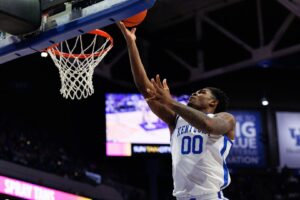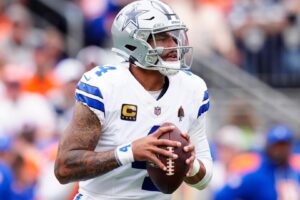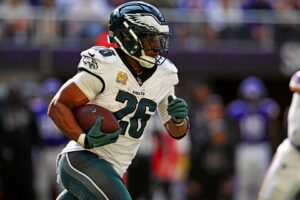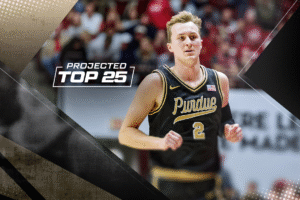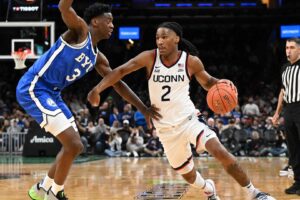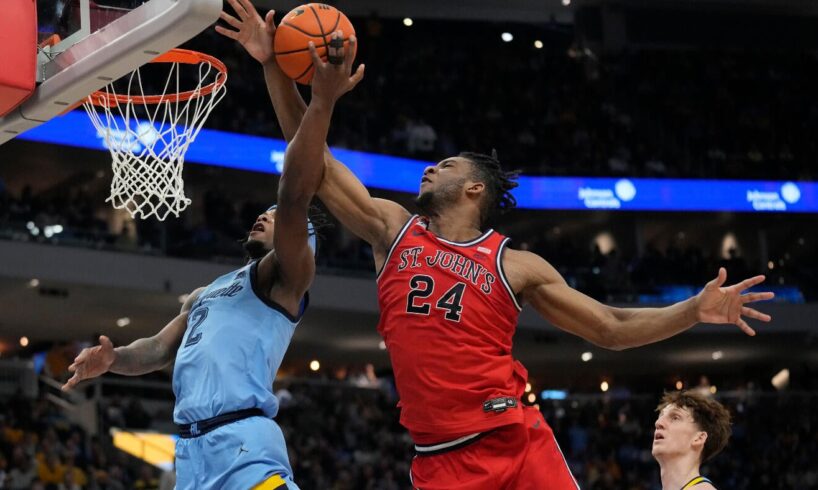
Offense reigns supreme in college basketball’s offseason chatter, but we can’t ignore the defensive side of the ball after the Final Four was littered with four top-10 defenses. Even in an era where scoring is skyrocketing, defense is vital and often can be a path to a NBA contract.
So, who are the best defenders in the country? As usual, it’s complicated.
Defense can be inherently hard to quantify, but one thing is certain: It’s so, so, so much more than blocks and steals. There are smart advanced analytic models that build all-encompassing defensive grades, but that’s still a bit subjective and can miss the mark. For reference, one model had Florida’s Walter Clayton Jr. graded as the best defender on the team. Clayton was the Gators’ All-American, but it was for his barrage of buckets, not his defense. His game-sealing defensive play in the national championship win over Houston was one of the biggest plays of the season and was also ironic in more ways than one.
“Everyone gives him crap about how he doesn’t play defense, but he made the play of the game defensively,” big man Micah Handlogten told CBS Sports in the gleeful aftermath. “We came away with the win because of it. I’m so happy for him. I’m so proud of him.”
Analytics are a tool, not the gospel, for defensive evaluation. Just like steal percentage and block percentage can tell a story about a defender, but not the story.
So what are the best ways to judge defense? I’m a firm believer that the full-game tape is the best way to assess defense. Who are they being asked to guard? Is it the opposing star or the low-usage role player? What’s the scheme? What are they being asked to do? How do they defend when they’re tired? It all matters.
For this exercise, we split defenders up into six different buckets:
Point of attack: These players tend to guard the fastest point guards. They’re on-ball pests. Jumbo utility guards: These players…..

